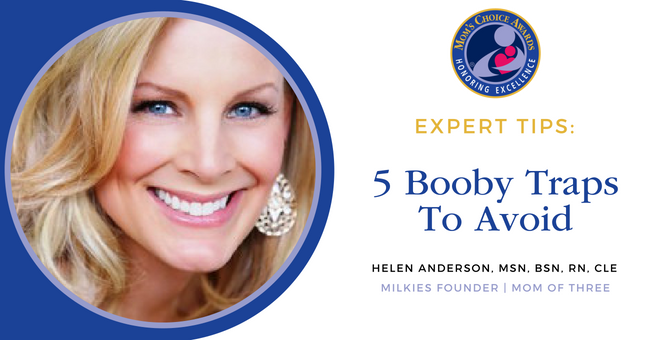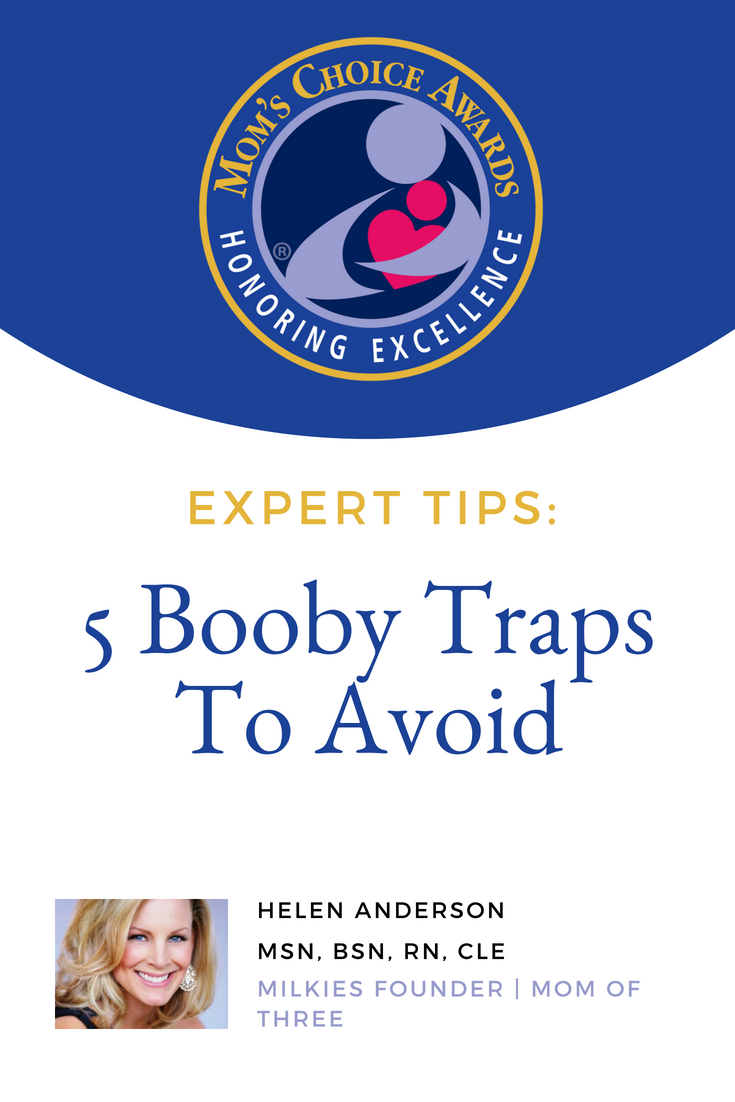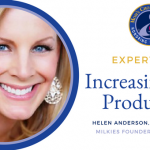 Helen Anderson, MSN, BSN, RN, CLE
Helen Anderson, MSN, BSN, RN, CLE
Founder of Milkies | Mom of Three
Breastfeeding is the natural way to feed your baby. Your milk provides the perfect amount of fat, carbohydrates, nutrients and water for her body and brain to grow just as it should. It is as close to a magical fluid as you can find, with components your baby needs and can’t get anywhere else. Breastmilk has easy to digest proteins, probiotics and antibodies; every ounce is customized for your baby based on his age and environment.
For most of us, the health benefits of breastmilk aren’t news. But most moms will stop exclusively breastfeeding before 6 months. Not because they choose formula, but because they find their milk supply lacking, begin supplementing and fall short of their breastfeeding goals.
To be sure your breastfeeding journey goes as planned, prepare for it. Know the ‘booby traps’ that can sabotage your milk supply and avoid them. You can boost your milk production once it drops, but let’s dodge that challenge if possible and keep your supply strong. Mamas, watch for these booby traps:
-
Growth spurt around 3 weeks and again at 3 months.
Your baby is nursing constantly and always seems hungry; she is fussy and frustrated at the breast all of which sends you and your co-parent into spirals of doubt about your milk supply. During a growth spurt, your baby is requiring more milk and your supply will need to catch up. The near-constant nursing is sending you body the signal to make more milk, and it will. If you start supplementing with formula, your baby won’t be motivated to breastfeed, and your body will make less milk.
-
Heading back to work.
Many moms rock at breastfeeding until they have to balance pumping, working and breastfeeding. Work can be stressful, it’s work after all. If your days are too busy to pump, your pump is unreliable or your co-workers are stressing you out about using the fridge to store your pumped milk, it can just seem like too much to manage. To minimize the work stress, talk to your co-workers before heading out on maternity leave. Let them know what to expect (you will be taking breaks to pump, storing your milk in a fridge or cooler from home) and address their concerns so there are no surprises when you grab your pump and lock yourself in an office for 10-15 minutes. Your right to pump at work is protected by law – read it here.
-
Oral or implanted contraceptives.
Around our 6 week postpartum visit, our doctor asks about birth control and may prescribe you the “mini-pill”, a low dose estrogen tablet. If you are not ready to get pregnant again, use condoms or other barrier methods. Estrogen works during pregnancy to keep your milk making cells turned off until delivery, even as they grow and prepare to feed your baby. Hormonal birth control like the mini-pill, Depo-Provera or Nexplanon will have a negative effect on your supply.
-
Softening of your breasts.
As your milk supply regulates, your breasts will begin to feel softer and less full. The engorgement and firmness will occur less, then not at all (as long as breasts are emptied regularly). Many moms stop breastfeeding when breast softening occurs due to perception of low milk supply. Actually, your milk supply is perfect. Your body is making the amount your baby needs, instead of over-producing.
-
You or your baby gets sick.
Keep breastfeeding if you are sick, you aren’t putting your baby at risk and probably already exposed her to your sick-making germs. Sharing your breastmilk and the antibodies your body is making to overcome the illness helps your baby beat the germs too. If your baby gets sick, keep offering the breast. You may need to pump to avoid engorgement if your baby is sleeping for long periods of time. If you need to take medication during your illness, breastfeeding is probably just fine. If you have questions about a medication and safety while breastfeeding check out LactMed, a database of medications and chemicals you can access for free here.
Breastfeeding can be challenging, but it doesn’t last long. Planning ahead to avoid those booby traps is the best way to keep your milk supply strong and reach your breastfeeding goals. Good luck mamas!
Nurse, Lactation Educator, Mom and inventor, Helen Anderson, has devoted much of her life to helping women reach their breastfeeding goals. She conceived the idea of the award-winning Milkies Milk-Saver after the birth of her son Henry. As an RN in a busy emergency room, Helen didn’t have much time to pump but needed to store enough breast milk to cover her 12-hour shifts. She couldn’t help but notice that every time she nursed, much of her precious milk leaked – soaking her pads, shirt, and even her baby! Recognizing this as a common problem for all breastfeeding women, Helen developed the Milk-Saver to safely and conveniently collect any milk leaked during the nursing session.
The product was an instant success and she soon joined with parent company, Fairhaven Health, to develop a number of other helpful products to support breastfeeding women. Milkies has since added many new products and team members but maintains the original goal of helping moms meet their breastfeeding goals with real, practical solutions to the everyday challenges of breastfeeding, milk collection and storage. Every Milkies product is tested by real moms and must meet strict criteria for value, quality and durability. Helen and her team of parents work together to rethink the barriers mothers face and their innovative solutions rival any of the large corporations in the lactation products market.
Helen and her team understand that problem-solving products are only part of the support breastfeeding moms need. That’s why Helen shares the latest research about breastfeeding and milk production on her blog and with moms via Facebook on Belly to Breast and now with the BF Live show The Boob Tube. In addition to product development and raising 3 busy children, Helen recently earned her Master’s in Nursing Education to prepare to be the most effective educator and advocate for breastfeeding families. She is committed to providing lactation education for every family through her many published articles, speaking engagements and work with organizations such as WIC and local health departments.








2 Comments on “5 Booby Traps To Avoid”
Those are great tips sometimes it can be a struggle!
Those are great tips !